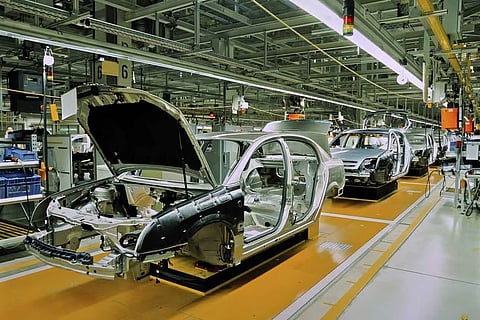
- NEWS
- the EDIT
- COMMENTARY
- BUSINESS
- LIFE
- SHOW
- ACTION
- GLOBAL GOALS
- SNAPS
- DYARYO TIRADA
- MORE

Even as top car brands in the country report optimistic sales projections for 2025, concerns over the challenges faced by local automotive parts manufacturers may dampen such optimism, the Philippine Parts Makers Association (PPMA) explained.
While the robust growth of the automotive sector signals a thriving industry, local parts suppliers continue to struggle with rising costs, import dependency, and limited government support.
PPMA president Ferdi Raquelsantos emphasized the urgency of addressing the challenges confronting the sector.
“We welcome the positive outlook in the automotive industry, but we must ask — what about the local parts makers? Many of our members are on the brink of closure due to an uneven playing field. If we don’t act now, we may see the death of Philippine auto parts manufacturing,” Raquelsantos warned.
Despite the government’s push for investments in the automotive and electric vehicle (EV) industries, local suppliers are finding it increasingly difficult to compete with cheaper imported components.
Our local industry has the capability and expertise to supply quality parts, but without the right policies, we are forced to rely on imports. The government and automotive companies must work hand in hand with local parts makers to ensure that this industry not only survives but thrives.
PPMA has reiterated the need for stronger policies that favor domestic manufacturers, such as increased local content requirements, tax incentives, and access to technological advancements.
“Our local industry has the capability and expertise to supply quality parts, but without the right policies, we are forced to rely on imports. The government and automotive companies must work hand in hand with local parts makers to ensure that this industry not only survives but thrives,” Raquelsantos added.
PPMA continues to push for greater collaboration between stakeholders, including automakers, policymakers, and investors, to build a more sustainable and competitive local supply chain. With the anticipated surge in vehicle demand, PPMA urges industry leaders to prioritize Filipino manufacturers and recognize their role in the country’s economic growth.
